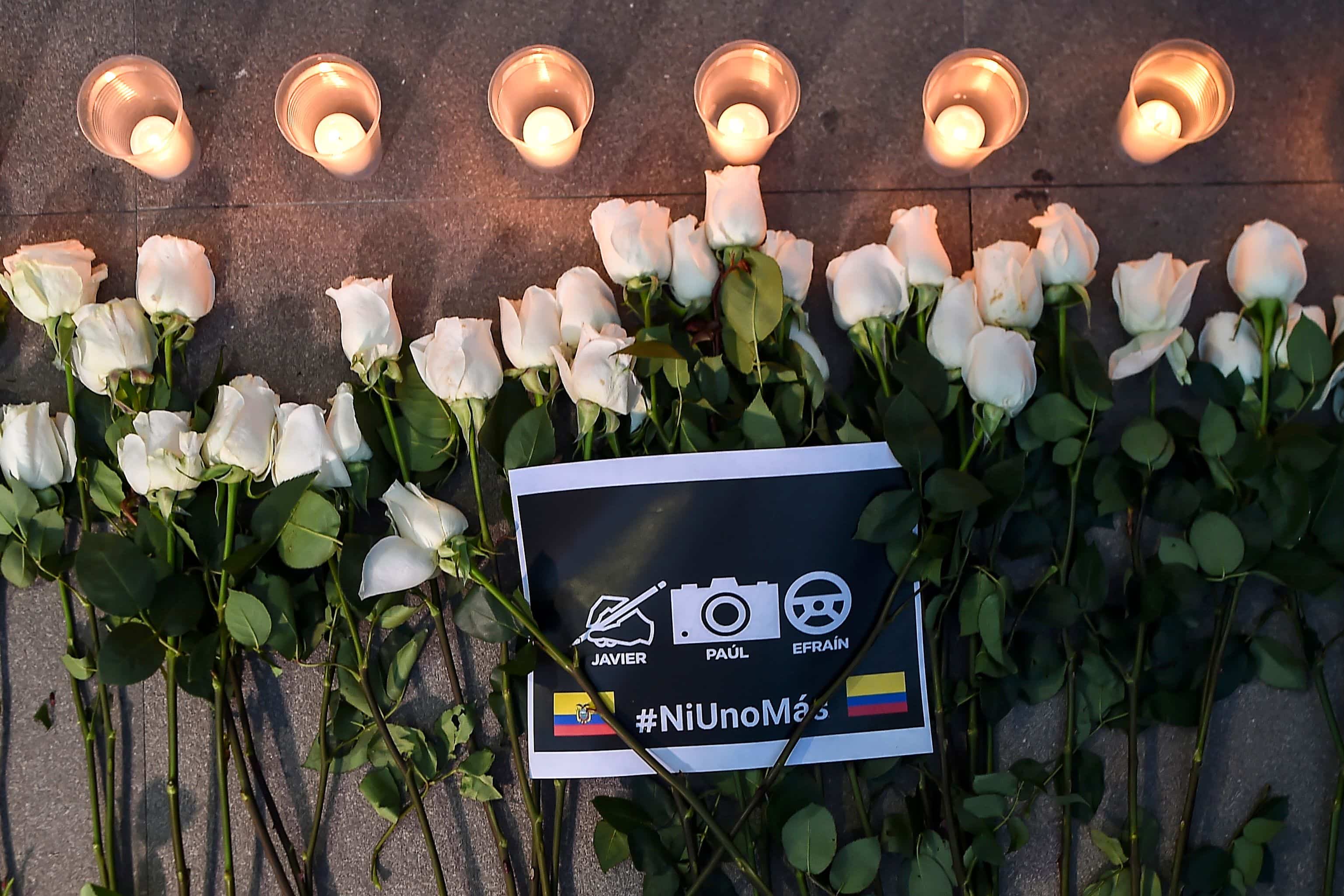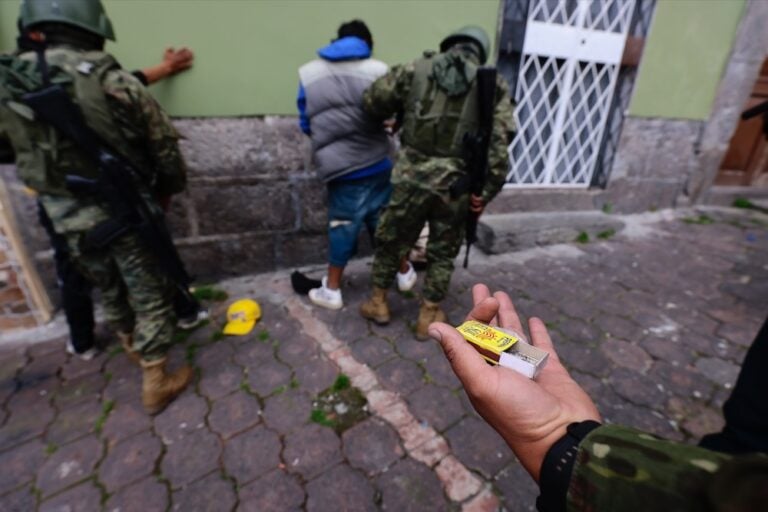The alliance will seek to prove that impunity will not win, and that it is possible to work “in real time” for justice.
This has been translated from the original article published in Spanish on 25 July.
They were just doing their job. On 26 March, a group of reporters went to cover a story on the border of Ecuador and Colombia, and never returned. They were kidnapped, taken prisoner, and ultimately murdered. The story of Paul Rivas, Efraín Segarra and Javier Ortega – a journalistic team from Ecuadorian newspaper “El Comercio” – was one that deeply shook the region.
The event caused so much civil society uproar and international condemnation, that – in a historic decision – the Inter-American Commission on Human Rights (IACHR) established the creation of a Special Follow-Up Team for the case. The team’s work begins on Wednesday, 25 July in Ecuador.
The delegation – scheduled to visit the country until 27 July – will be composed of Commissioner Esmeralda Arosemena de Troitiño, First Vice President of the IACHR, and Edison Lanza, Special Rapporteur on Freedom of Expression for the Organization of American States (OAS).
At least 10 investigative activities were initially carried out during their visit to Ecuador. The results will inform a timeline for the next six months of the investigation states. The mission seeks to ensure that those responsible for the crime are held to account.
IFEX spoke with Edison Lanza and our members in Ecuador and Colombia in order to gauge their opinions on this initiative – one that sets a precedent in Latin America, a place where impunity has become the norm in the cases of murdered journalists.
Working in real time
According to Lanza, the Special Follow-up Team was created in response to several factors: “In addition to the fact that this was an abominable crime, civil society was deeply affected. There is a public outcry for the investigation to produce results, and for the perpetrators to be found and sentenced.”
“Another important aspect was that both States agreed to implementing the commission. The IACHR can act as a subsidiary when all local legal measures have been exhausted. This occurred, for example, in the case of Mexico’s Ayotzinapa students. It’s also currently being done, laboriously, in Nicaragua,” he stated.
“This is the first time in history that this kind of commission has been created and accepted voluntarily, with regards to crimes against journalists. We have high expectations: primarily, we would like the possibility to prove and verify that we can work in real time, instead of facing a terrible situation where there are hundreds of cases of murdered journalists for years on end, with no one knowing anything about them,” said Lanza.
For the rapporteur, this is a “clear sign” that “it is possible to work in real time on these kinds of cases, when there is political will and access to adequate resources.”
Breaking the cycle of impunity
Cesar Ricaurte, Executive Director of IFEX’s member in Ecuador, Fundamedios, has two clear expectations for this initiative: “We hope that the presence of the Special Follow-up Team will allow us to determine the truth behind this case. We hope that we are able to identify responsibilities – including political ones – that will shed light on the truth and serve as a base for reparations for the families.”
“The second expectation is more general, and relates to breaking the cycle of impunity regarding crimes against journalists in the region. We believe this mechanism can serve as a model, so that other States in the region can begin to seriously commit themselves to investigating and prosecuting crimes against journalists,” he added.
Investigations are currently being carried out by public prosecutors’ offices in Ecuador and Colombia. Pre-trial proceedings are underway as a result of a previous investigation. Nevertheless, “it is known that the Colombian police have arrested various individuals associated with the group Alias Guacho, who were potentially involved in the crimes against the journalistic team from ‘El Comercio’,” Ricaurte said.
This process strongly correlates with Fundamedios’ mission as an organisation. “We want to stand by the victims – and in this case, the families – in their search for truth, justice, memory and reparations. This is an emblematic case that could break the cycle of impunity, which is why we must continue with the proceedings,” stated the director.
An historic moment
Pedro Vaca, director of Foundation for Press Freedom (Fundación para la Libertad de Prensa, FLIP), a Colombian organisation and IFEX member, notes that, “in such a complex, bi-national case – one with so many actors, that invokes so much pain – it is essential that the IACHR uphold its standards and lend support to the States.”
“The creation of the Special Follow-Up Team is a step in the right direction. It is an historic moment. It is too early, however, to evaluate whether it will have a positive impact. The commission is obviously a welcome development, but it is very important that it conducts its work independently and that it is not influenced by States; this will provide them with a better outlook,” he added.
“At FLIP, we have always said that impunity for crimes against the press creates a vicious cycle. Colombia is experiencing a sharp increase in threats against journalists and civil society leaders. Justice, the elucidation of facts, and reparations in these kinds of cases will make killers and aggressors understand that consequences do exist – and these consequences will discourage violence against journalists,” stated Vaca.



